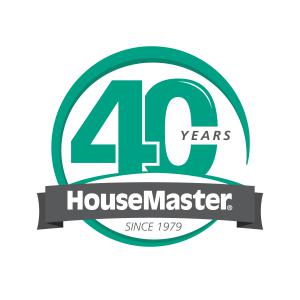HouseMaster offers consumers water safety tips for National Water Quality Month
More than 60 million Americans may have been exposed to unsafe water
SOMERVILLE, N.J., USA, August 5, 2019 /EINPresswire.com/ -- It was only last year that Flint finally had safe drinking water again. The water supply had been contaminated since 2014 after the city switched its water supply to the Flint River. Troubling lead levels in children, and a Legionnaires’ disease outbreak that killed 12 people and injured at least 87 more over a one-year period, convinced officials that something finally had to be done.Flint garnered national headlines and exposed the issue of water contamination. But tens of millions of Americans may also have been impacted by unsafe water.
Several years ago, News21 – an investigative journalism project backed by the Carnegie Corporation and the James L. Knight Foundation — found that up to 63 million Americans may have been exposed to potentially dangerous water at least once over the 10 years prior to the study.
“What makes water contamination so concerning is that water is something we take for granted and rely on every day,” said HouseMaster President and CEO Kathleen Kuhn. “We assume that our water is safe to drink because of where we live and our standards. But the lessons from Flint can help all of us remain vigilant about issues of water quality.”
In support of National Water Quality Month this August, HouseMaster offers these facts and tips about water quality.
● Don’t panic -- The first thing to keep in mind is that the Environmental Protection Agency (EPA) requires municipal water companies to notify residents via “newspaper, mail, radio, TV, or hand-delivery” when water doesn’t meet standards. The notice from the supplier will let consumers know what to do (oftentimes, boiling water in these instances will make it safe).
● What causes contaminated water? -- Everything from aging infrastructure to industrial runoff, farming waste to radioactive materials, fracking to high levels of naturally occurring contaminants.
● Virtually all U.S. drinking water goes through decontamination -- This includes filtration and disinfection. All water has contaminants in it — the question is ultimately how those contaminants are mitigated to meet quality standards. It all starts with your local water treatment facility.
● Check for water quality violations -- Here is a map from News21 that shows EPA violations and types of contaminants found at a county-by-county level in the U.S.
● Access a Consumer Confidence Report -- The EPA requires community water systems to produce annual reports about where local water comes from and the contaminants found in it.
● Have your water tested at home -- Some older homes with lead components in the plumbing may be susceptible to higher levels of lead in the water. Lead solder wasn’t banned from plumbing systems until 1991, so many experts suggest having your water tested for lead if your home was built before that.
● Homes with plastic plumbing and copper pipes may also need testing -- Homes built before 1977 might have PVC pipes that leach toxic levels of polyvinyl chloride into stagnant water at dead-end pipe segments. Copper pipes and fitting can be found in homes of all ages, and when copper leaches into the water — especially in areas where the water is acidic — it can potentially cause vomiting, diarrhea, stomach cramps, and nausea. Ingesting copper has also been associated with liver damage and kidney disease. Knowing the risk from your home’s plumbing system can help you prepare for additional water testing as needed.
● How to get your water tested -- Connect with your local water company or health department — some will conduct in-home testing. Many HouseMaster offices can provide water testing services through accredited laboratories. Testing varies by location but generally includes testing for bacteria and other elements like nitrate, hardness and acidity. Expanded options may include testing for lead, volatile organic compounds and other elements.
It’s important to know your water quality and ensure that what you consume every day is safe. Sadly, there are communities around the world that lack access to clean, safe water. Non-profits like Surge for Water help these local communities build water sanitation solutions.
###
About HouseMaster:
Founded in 1979 and Headquartered in Somerville, N.J., HouseMaster is the oldest and one of the largest home inspection companies in North America. With more than 320 franchised areas throughout the U.S. and Canada, HouseMaster is the most respected name in home inspections. For 40 years, HouseMaster has built upon a foundation of solid leadership and innovation with a continued focus on delivering the highest quality service experience to their customers and providing HouseMaster franchisees the tools and support necessary to do so. Each HouseMaster franchise is an independently owned and operated business. HouseMaster is a registered trademark of HM Services, LLC.
For more information please visit http://housemaster.com.
Bob Spoerl
Bear Icebox Communications Inc.
773-453-2444
email us here

